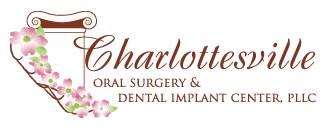14 Dec Gum Disease: What can I do to reduce my risk?
Gum disease can have serious consequences for your oral health when it is left untreated. It can ultimately lead to tooth loss and bone loss if it reaches the most severe stages.
If you develop gum disease and you do not have it treated promptly, you may eventually have to see an oral surgeon to have a damaged tooth extracted or get dental implants to replace a missing tooth.
The damage may not be contained to your mouth, either. Gum disease has been linked with other systemic conditions ranging from heart disease to diabetes to some forms of cancer.
To avoid these negative outcomes for their dental and overall health, patients may wonder how they can decrease their chances of developing this condition.
The key is in minimizing oral bacteria, which can cause inflammation in the gum tissue. Good, regular professional dental care will go a long way in cutting your chances of gum disease. Develop a solid relationship with a general dentist and visit that dentist every six months.
Professional dental cleanings help to eliminate plaque and tartar that can collect, even in the mouths of the most diligent brushers and flossers. Additionally, regular checkups give your dentist an opportunity to keep tabs on your gums and spot any changes that have developed since your last visit. If the dentist catches gum disease at an early stage, the treatment is minimally invasive and can be very effective.
Of course, patients must also be conscientious about their home oral hygiene routines to reduce their risk of gum disease. Brush twice a day, for at least two minutes each time, and floss daily. Adding an anti-bacterial mouthwash to your regimen may also be helpful.
Your diet can affect your risk of gum disease, too. If you have a habit of snacking on sweet, sticky foods, that residue can linger in your mouth and provide a food source for oral bacteria. Cut back on the sugary foods, and if possible at least rinse your mouth thoroughly after eating them.
Patients can take many steps to prevent gum disease or to prevent the condition from progressing when it is already present. Discuss your oral hygiene habits with our oral surgeon at Charlottesville Oral Surgery & Dental Implant Center to determine if you are doing everything possible to avoid gum disease.
